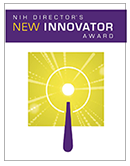2011 Awardees
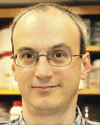
Stephen G. Aller, Ph.D.
University of Alabama at Birmingham
Project Title: Streamlined Structures of Human Integral Membrane Proteins at Atomic Resolution
Grant ID: DP2-OD008591
Steve is an Associate Professor in the Center for Structural Biology and Dept. of Pharmacology & Toxicology at the University of Alabama at Birmingham (UAB). He received his Ph.D. in Molecular Biophysics and Biochemistry at Yale University, and in postdoctoral work at the Scripps Research Institute, he solved the first x-ray crystal structure of any mammalian ATP-Binding Cassette (ABC) transporter called P-glycoprotein which is a cause of multidrug resistance in chemotherapy. Achieving success in the x-ray crystallography of a mammalian membrane protein (MP) is still largely a "shot in the dark", but the probability of success can be improved using brute-force approaches such as conducting crystal trials of several orthologs as opposed to only pursuing the structure of a human MP specifically. Yet, of course, the human MPs are of the highest interest since many are the direct causes of human disease and they are targets for a large percentage of pharmaceutical drugs currently on the market. Steve's research focus is to better understand the molecular basis of human disease and treatments with atomic precision by streamlining the crystal structure-determination process and increase success rates. He is currently pursuing structures of several new ABC proteins not previously crystallized.

Aaron B. Baker, Ph.D.
University of Texas at Austin
Project Title: Engineering Effective Revascularization Strategies for Ischemia in Disease States
Grant ID: DP2-OD008716
Aaron Baker is an Assistant Professor of Biomedical Engineering and a Fellow of the Marion E. Forsman Centennial Professorship in Engineering at the University of Texas at Austin. He earned his B.S.E/M.S.E. degrees in Bioengineering from the University of Washington and his Doctoral degree from the Harvard-MIT Health Sciences and Technology Program. He is a fellow of the American Heart Association and served as an associate scientific advisor for Science Translational Medicine. Dr. Baker’s laboratory focuses on using multidisciplinary approaches to study the mechanisms of cardiovascular disease and the interactions of cancer with the vascular system. His recent research has included the development of novel therapies for treating peripheral vascular disease and the creation of in vitro platforms for performing high throughput drug screening that incorporate the biomechanical forces present in the body.

Maria Barna, Ph.D.
Stanford University
Project Title: Specialized Ribosomes in Control of Gene Expression and Embryonic Development
Grant ID: DP2-OD008509
Maria Barna is an Assistant Professor in the Departments of Developmental Biology and Genetics at Stanford University. Dr. Barna obtained her B.A. in Anthropology from New York University and her Ph.D. from Cornell University, Weill Graduate School of Medicine. Dr. Barna was subsequently appointed as a UCSF Fellow through the Sandler Fellows program, which enables exceptionally promising young scientists to establish independent research programs immediately following graduate school. Her lab investigates an additional layer of gene regulation, termed a “ribocode”, whereby heterogeneity in composition enables ribosomes to be tuned to translate specific mRNAs. This research adds a fundamental new layer of gene regulation vital for post-transcriptional gene expression, organismal development, and evolution.

Uttiya Basu, Ph.D.
Columbia University
Project Title: Non-Coding RNA Engineers Antibody Diversity
Grant ID: DP2-OD008651
Uttiya Basu received his Ph.D. degree in Molecular Biology from Albert Einstein College of Medicine in 2004. After finishing postdoctoral training in the laboratory of Dr. Frederick Alt at Harvard Medical School in 2009, he joined Columbia University as an Assistant Professor in the Department of Microbiology and Immunology. His laboratory utilizes technologies involving genome engineering, genomics and biochemistry. His research is focused on the various mechanisms by which non-coding RNA transcription controls genome architecture in pluripotent and differentiated mammalian cells.

Nicolas E. Buchler, Ph.D.
Duke University
Project Title: Rewiring the Yeast Brain: Redundancy and Interference in Genetic Networks
Grant ID: DP2-OD008654
Nicolas Buchler is an Assistant Professor in the Department of Biology with a secondary appointment in Physics. He obtained his doctoral degree in Biophysics from the University of Michigan, where he worked with Richard Goldstein on protein designability and evolution. This was followed by postdoctoral research on the mechanisms and dynamics of gene regulation with Terence Hwa at the University of California, San Diego and then Frederick Cross at the Rockefeller University. Nick joined the Duke faculty in 2009. His lab uses an interdisciplinary approach (theory and experiment; physics and biology; synthetic and systems biology) to understand the diverse molecular and evolutionary mechanisms by which thresholds and combinatorial control, bistability and oscillation have evolved in biological systems.
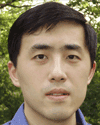
Long Cai, Ph.D.
California Institute of Technology
Project Title: Systems Biology in Single Cells by Super-Resolution Barcoding
Grant ID: DP2-OD008530
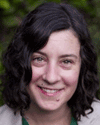
Julie C. Canman, Ph.D.
Columbia University
Project Title: IR-LAMP: Optigenetic Technology to Spatially Manipulate Protein Function In Vivo
Grant ID: DP2-OD008773
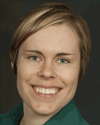
Erin E. Carlson, Ph.D.
University of Minnesota
Project Title: Targeted Natural Product Diversification to Identify Novel Antibacterial Agents
Grant ID: DP2-OD008592
Erin E. Carlson is an Associate Professor in the Chemistry Department at the University of Minnesota and is appointed as a Graduate Faculty member of the Department of Medicinal Chemistry and the graduate program in Biomedical Informatics and Computational Biology. She received her B.A. at St. Olaf College and went on to graduate studies funded by the NIH Predoctoral Biotechnology Training Program at the University of Wisconsin - Madison and earned a Ph.D. in organic chemistry in 2005 under the direction of Professor Laura L. Kiessling. Subsequently, Dr. Carlson was awarded an American Cancer Society Postdoctoral Fellowship for studies at The Scripps Research Institute with Professor Benjamin F. Cravatt. In 2007, Dr. Carlson received an NIH Pathway to Independence Award (K99/R00) and started her independent career at Indiana University (2008-2014). Her research program unites tools from chemistry and biology to promote the development of new strategies for treatment of bacterial infections and the discovery of efficacious compounds.

Edward Chang, Ph.D.
University of California, San Francisco
Project Title: Functional Architecture of Human Speech Motor Cortex
Grant ID: DP2-OD008627
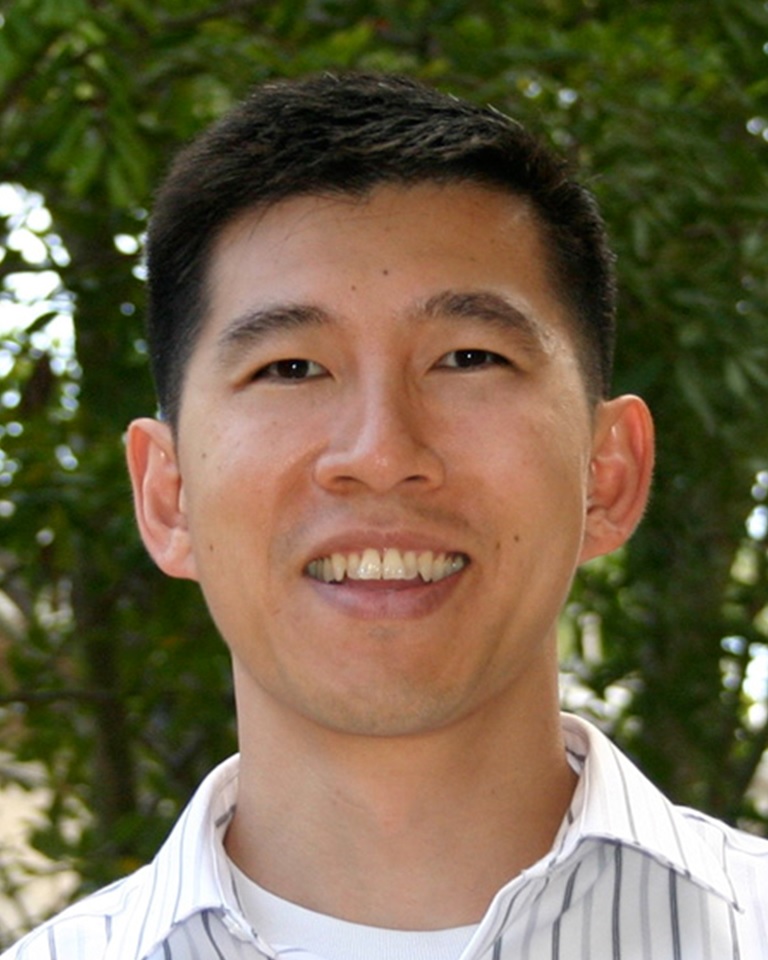
John T. Chang, M.D.
University of California, San Diego
Project Title: Understanding the Basis for Cellular Diversity During Adaptive Immunity
Grant ID: DP2-OD008469
John Chang is an Associate Professor of Medicine at the University of California, San Diego. He obtained his B.S. in Biological Sciences from Stanford University, his M.D. from Temple University, and research training as a Howard Hughes Medical Institute-National Institutes of Health Research Scholar in the laboratory of Dr. Ethan Shevach. Dr. Chang subsequently did his Internal Medicine residency and Gastroenterology fellowship at the University of Pennsylvania, completing a postdoctoral fellowship in immunology with Dr. Steven Reiner. Dr. Chang’s laboratory is focused on investigating basic immune mechanisms underlying lymphocyte fate determination in the context of infectious diseases and autoimmunity. Dr. Chang’s work has been recognized by an NIH Director’s New Innovator Award, a V Foundation for Cancer Research V Scholars Award, and a Howard Hughes Medical Institute Physician-Scientist Early Career Award.

Michelle C. Chang, Ph.D.
University of California, Berkeley
Project Title: Discovery and Mechanistic Study of Fluorine Biochemistry
Grant ID: DP2-OD008696
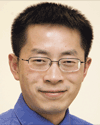
Wei Cheng, Ph.D.
University of Michigan at Ann Arbor
Project Title: Single Cell with One Particle Entry (SCOPE) for Study of HIV Infection
Grant ID: DP2-OD008693
Dr. Cheng is an Associate Professor at the University of Michigan in the Department of Pharmaceutical Sciences and the Department of Biophysics. After earning a B.S. in biology from the University of Science and Technology of China, he completed his Ph.D. in the program of molecular biophysics in the Division of Biology and Biomedical Sciences at Washington University in St. Louis. After a postdoctoral training at UC-Berkeley, he accepted an endowed assistant professor position with the University of Michigan Ann Arbor in 2009. Professor Cheng’s lab develops single-molecule and single-particle techniques and applies them to fundamental questions in biology and disease, with a special focus on mechanisms of HIV infection.

Heather R. Christofk, Ph.D.
David Geffen School of Medicine at the University of California, Los Angeles
Project Title: Regulation of the Warburg Effect in Cancer
Grant ID: DP2-OD008454
Heather Christofk is an assistant professor in the Department of Molecular and Medical Pharmacology at UCLA and an affiliate of the Jonsson Comprehensive Cancer Center and the Broad Stem Cell Research Center at UCLA. Her research focuses on the regulation and role of metabolic switches in cellular transformation, virus infection, and differentiation. By elucidating regulatory mechanisms for metabolic switches in normal and disease states, she hopes to identify diagnostic and treatment strategies for cancer patients. Dr. Christofk received a bachelor’s degree in Molecular, Cell, and Developmental Biology from UCLA in 2001, and a doctorate in Cell and Developmental Biology from Harvard University in 2007, under the mentorship of Dr. Lewis Cantley. After a postdoctoral fellowship with Dr. Frank McCormick at UCSF, she joined the faculty at UCLA in 2008. In addition to the NIH Director’s New Innovator Award, Dr. Christofk is a Searle Scholar and has been awarded a Damon Runyon-Rachleff Innovation Award.
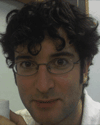
Hunter B. Fraser, Ph.D.
Stanford University
Project Title: Systematic Functional Annotation of Human Cis-Regulatory Genetic Variation
Grant ID: DP2-OD008456

Charles A. Gersbach, Ph.D.
Duke University
Project Title: Engineering Morphogenetic Factors for Enhanced Genetic Reprogramming
Grant ID: DP2-OD008586
Dr. Charles A. Gersbach is an Associate Professor at Duke University in the Departments of Biomedical Engineering and Orthopaedic Surgery, an Investigator in the Duke Center for Genomic and Computational Biology, and Director of the Duke Center for Biomolecular and Tissue Engineering. He received his Ph.D. from the Georgia Institute of Technology and completed postdoctoral training at The Scripps Research Institute. His research interests are in genome and epigenome editing, gene therapy, regenerative medicine, biomolecular and cellular engineering, synthetic biology, optogenetics, and genomics. Dr. Gersbach’s laboratory at Duke University is focused on applying molecular and cellular engineering to develop new methods to genetically modify genome sequences and cellular gene networks in a precise and targeted manner. Dr. Gersbach’s work has been recognized through awards including the NIH Director’s New Innovator Award, the NSF CAREER Award, and the Outstanding New Investigator Award from the American Society of Gene and Cell Therapy.

Aron M. Geurts, M.D., Ph.D.
Medical College of Wisconsin
Project Title: Advanced Genetic Engineering Technology Development
Grant ID: DP2-OD008586
Aron Geurts, Ph.D. received his training at the University of Minnesota–Twin Cities where he developed transposable element technology for gene therapy and mouse mutagenesis. He joined the Medical College of Wisconsin (Milwaukee) in 2006, and is currently an Associate Professor in the MCW Cardiovascular Center, Human Molecular Genetics Center, and the Department of Physiology where his laboratory pioneers and applies cutting edge gene editing approaches in stem cells and whole animals (primarily rats) to model human diseases including cardiomyopathies, mitochondrial diseases, hypertension, type 1 diabetes, and drug addiction. His lab is strongly motivated by the challenges of modeling human genetic variation and the practice of routinely applying gene editing toward Personalized Medicine. Dr. Geurts was awarded the New Innovator Award in 2011, supporting his efforts to advance genetic engineering technology.
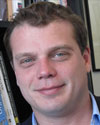
Nathan C. Gianneschi, Ph.D.
University of California, San Diego
Project Title: Programming Pharmacokinetics In Vivo Via In Situ Switching of Nanoscale Particle
Grant ID: DP2-OD008724
Nathan C. Gianneschi received his B.Sc.(Hons) at the University of Adelaide in 1999. In 2005, he completed his Ph.D. at Northwestern University. Following a Dow Chemical postdoctoral fellowship at The Scripps Research Institute in 2008, he became a professor at the University of California, San Diego. The Gianneschi group takes an interdisciplinary approach to nanomaterials research with a focus on multifunctional materials with interests that include biomedical applications, programmed interactions with biomolecules and cells, and basic research into nanoscale materials design, synthesis and characterization. For this work he has been awarded the NIH Director's New Innovator Award, the NIH Director's Transformative Research Award and the White House's highest honor for young scientists and engineers with a Presidential Early Career Award for Scientists and Engineers. Prof. Gianneschi was awarded a Drefus Foundation Fellowship, is a Kavli Fellow of the National Academy of Sciences, and is an Alfred P. Sloan Foundation Fellow.
Lea Goentoro, Ph.D.
California Institute of Technology
Project Title: Relative Perception in Wnt Signaling
Grant ID: DP2-OD008471
Lea Goentoro is an Assistant Professor in the Division of Biology and Biological Engineering at California Institute of Technology. She studied Chemical Engineering at University of Wisconsin, Madison, received Ph.D. from Princeton University, and conducted postdoctoral work in the Department of Systems Biology Department at Harvard Medical School. Her lab pursues the idea that just like our sensory systems perceive the world in a relative way, each cell in our body senses its environment in a relative manner. In her postdoctoral work with Marc Kirschner at Harvard Medical School, she observed experimental evidence for this in the canonical Wnt pathway, one of the major signaling pathways in animal cells. Funded by the New Innovator Award, her lab aims to uncover the mechanism for how cells compute the relative level of signal in the Wnt pathway, and explore how this computation is modified across tissues.
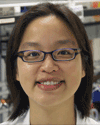
Ming C. Hammond, Ph.D.
University Of California Berkeley
Project Title: A Chemical Biology Approach to Tagging RNAs in Live Cells
Grant ID: DP2-OD008677
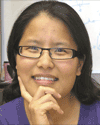
Songi Han, Ph.D.
University of California, Santa Barbara
Project Title: Probing Early Protein Aggregation Mechanisms and Their Relationship to Disease Effects
Grant ID: DP2-OD008702
Songi Han received her doctoral degree in natural sciences (Dr.rer.nat) from Aachen University of Technology (RWTH), Germany, in 2001. She pursued her postdoctoral studies at the University of California, Berkeley, supported by the Feodor Lynen Fellowship of the Alexander von Humboldt Foundation. She joined the faculty at UCSB in 2004, received tenure in 2010, and was promoted to full professor in 2012. At UCSB, she pioneered the direct measurement of water diffusivity and retardation at surface-water interfaces by Overhauser Dynamic Nuclear Polarization (ODNP), which has become important in soft matter solvent-function studies, and is being used to study a range of systems from bioinspired adhesive coacervate and fuel cell electrolyte transport studies to elucidating causal mechanisms in disease-prone globular and intrinsically disordered proteins. She is a recipient of the 2008 Packard Fellowship, the 2010 Dreyfus-Teacher Scholar Award, the 2011 NIH Innovator Award and the 2015 Bessel Prize of the Alexander von Humboldt Foundation.

Bo Huang, Ph.D.
University of California, San Francisco
Project Title: Solving Macromolecular Complex Architecture In Situ by Super-Resolution Microscopy
Grant ID: DP2-OD008479
Bo Huang received his B.S. degree in Chemistry from Peking University, China, in 2001, and Ph.D. degree in Chemistry at Stanford University in 2006. After finishing postdoc work at Harvard University in 2009, he joined UCSF as an Assistant Professor of in the Department of Pharmaceutical Chemistry, joint with the Department of Biochemistry & Biophysics, and was promoted to Associate Professor in 2014. His research work encompasses the areas of single molecule biophysics, microscopy, and cell biology. Being a pioneer in developing the super-resolution microscopy technique of STORM, he is currently interested in developing imaging new techniques for the study of genome organization, protein complexes and membrane receptors.
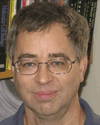
Christopher Hug, M.D., Ph.D.
Children’s Hospital Boston / Harvard Medical School
Project Title: Macrophage Integrated and Targeted Yeast Therapeutics
Grant ID: DP2-OD008618
Dr. Hug is a pediatric pulmonary physician and basic scientist. He received his B.S. and B.A. from the University of Cincinnati, M.D. and Ph.D. from Washington University in St. Louis, and completed medical training in pediatrics and pulmonary medicine at Boston Children's Hospital with post-doctoral research at the Whitehead Institute. His work advances the health of children and adults and involves collaborations spanning the globe but is centered at Boston Children's Hospital and Harvard Medical School, where he cares for children and young adults with lung disease. His research includes studies on diabetes and obesity, macrophage integrated and targeted yeast therapeutics, and global and environmental health.

Hongrui Jiang, Ph.D.
University of Wisconsin, Madison
Project Title: Accomodative Contact Lens for Presbyopic Correction
Grant ID: DP2-OD008678
Hongrui Jiang is currently the Lynn H. Matthias Professor in Engineering and the Vilas Distinguished Achievement Professor in the Department of Electrical and Computer Engineering, a Faculty Affiliate in the Department of Biomedical Engineering, a Faculty Member of the Materials Science Program, and a member of the McPherson Eye Research Institute, University of Wisconsin, Madison. He received the B.S. degree in physics from Peking University, Beijing, China, and the M.S. and Ph.D. degrees in electrical engineering in 1999 and 2001, respectively, from Cornell University, Ithaca, NY. He was a Postdoctoral Researcher at the University of California-Berkeley, Berkeley, from 2001 to 2002. His research interests are in optical MEMS, bioMEMS, smart materials and micro-/nanostructures, lab on a chip, and biomimetics and bioinspiration. Dr. Jiang was the recipient of numerous awards, including the NIH New Innovator Award, NSF CAREER Award, and DARPA New Faculty Award.

Sundeep Kalantry, Ph.D.
University of Michigan Medical School
Project Title: Initiation of Epigenetic Transcriptional Regulation
Grant ID: DP2-OD008646
Sundeep Kalantry is an assistant professor in the Department of Human Genetics at the University of Michigan Medical School. He received his Ph.D. from Weill Graduate School of Medical Sciences of Cornell University and performed a post-doctorate fellowship at UNC Chapel Hill with Terry Magnuson. Dr. Kalantry’s laboratory studies X-inactivation as well as other epigenetic processes that characterize the early embryo using mouse models. Dr. Kalantry is the recipient of an NIH Pathway to Independence Award (K99/R00), an NIH Director’s New Innovator Award (DP2), an Ellison Medical Foundation New Scholar in Aging Award, and a March of Dimes Basil O’Connor Starter Scholar Research Award.

Andrea M. Kasko, Ph.D.
University of California, Los Angeles
Project Title: Phototunable Biomaterials to Engineer Complex 3D Cell Microenvironments
Grant ID: DP2-OD008533
Andrea M. Kasko obtained a B.S. degree in Chemistry from the University of Michigan in 1997, a M.S.E degree in Macromolecular Science Engineering from Case Western Reserve University in 1999 (working with Virgil Percec), and Ph.D. in Polymer Science from the University of Akron in 2004 (working with Coleen Pugh). She spent two years as a post-doctoral researcher sponsored by the Howard Hughes Medical Institute at the University of Colorado, Boulder (working with Kristi Anseth). In 2006, Andrea joined the Bioengineering Department at UCLA, where she is currently an Associate Professor. The overall theme of her research group is the synthesis of new polymeric biomaterials, focusing specifically in two areas: dynamically controllable biomaterials and biomimetic and bio-derived materials.

Megan C. King, Ph.D.
Yale University School of Medicine
Project Title: The Role of Nuclear Architecture in Adaptation
Grant ID: DP2-OD008429
Megan King received her B.A. in Biochemistry from Brandeis University and her Ph.D. in Biochemistry and Molecular Biophysics from the University of Pennsylvania. During her postdoctoral training with Günter Blobel at Rockefeller University, she discovered new mechanisms for the targeting and function of integral inner nuclear membrane proteins. Since founding her own group in the Cell Biology Department at the Yale School of Medicine in 2009, Megan has continued to investigate the broad array of biological functions that are integrated at the nuclear envelope, from impacts on DNA repair to cellular mechanics. An ongoing goal is to understand how association of chromatin loci with the inner nuclear membrane influences genome integrity, particularly through regulation of homology-directed DNA repair. Megan was also named a Searle Scholar in 2011.
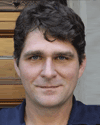
Steven T. Kosak, Ph.D.
Northwestern University
Project Title: Self-Organization of the Human Genome
Grant ID: DP2-OD008429
Steven T. Kosak is an assistant professor in the Department of Cell and Molecular Biology at Northwestern University Feinberg School of Medicine. He received his B.A. in Biology and English from Earlham College and his Ph.D. in Molecular Genetics and Cell Biology from The University of Chicago. As a graduate student he began his focus on the functional organization of the vertebrate genome. Dr. Kosak went on to pursue the relationship between gene regulation and nuclear organization as a Jane Coffin Childs Postdoctoral Fellow in the laboratory of Dr. Mark Groudine at the Fred Hutchinson Cancer Research Center. With his own group at Northwestern, Dr. Kosak continues to broadly examine how the human genome self-organizes in relation to its myriad functions.
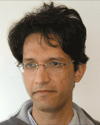
Gyanu Lamichhane, Ph.D.
Johns Hopkins University
Project Title: New Drug for Treatment of Chronic Bacterial Infection
Grant ID: DP2-OD008459
Gyanu Lamichhane is an Associate Profession in the Division of Infectious Diseases, Johns Hopkins University. He started and runs a research program titled ‘Taskforce to study Resistance Emergence & Antimicrobial development Technology’ (TREAT) with a focus to discover vulnerabilities in bacterial pathogens and to leverage the biochemical properties of the vulnerabilities to develop new antimicrobials. His group currently studies metabolism of bacterial peptidoglycan and is working to exploit novel molecular vulnerabilities in the pathway of peptidoglycan biosynthesis. They have recently characterized L,D-transpeptidases, novel enzymes involved in the final step of peptidoglycan biosynthesis.

Seok-Yong Lee, Ph.D.
Duke University School of Medicine
Project Title: Pharmacology and Biophysics of the Voltage-Gated Sodium Channel Nav1.7: A Therapeutic Target for Pain
Grant ID: DP2-OD008380

Shaun W. Lee, Ph.D.
University of Notre Dame
Project Title: Design and Use of Novel Bacteriocins
Grant ID: DP2-OD008468
Shaun Lee is an Associate Professor at the University of Notre Dame in the Department of Biological Sciences, and an investigator in the Eck Institute for Global Health. He received his Ph.D. at Oregon Health and Science University in Molecular Microbiology and Immunology, under the direction of Dr. Maggie So, and completed postdoctoral training at University of California San Diego under the direction of Dr. Jack Dixon. Dr. Lee's research focuses on the biosynthesis and function of bacterially produced peptide compounds. Many of these compounds have been investigated for their roles in host virulence as well as microbial defense and signaling, and may uncover new avenues for developing therapeutics and antibiotic compounds.

Erez Lieberman Aiden, Ph.D.
Harvard University / Broad Institute
Project Title: Exploring How the Genome Folds Through Proximity Ligation and Sequencing
Grant ID: DP2-OD008540

Timothy Lu, M.D., Ph.D.
Massachusetts Institute of Technology
Project Title: High-Throughput Nanoscale Approaches to Studying and Inhibiting Amyloid Toxicity
Grant ID: DP2-OD008435
Timothy Lu, M.D., Ph.D. is an Associate Professor leading the Synthetic Biology Group in the Department of Electrical Engineering and Computer Science and the Department of Biological Engineering at MIT. He is a core member of the MIT Synthetic Biology Center and a co-founder of Sample6 Inc., Synlogic Inc., Eligo Biosciences, and Engine Biosciences. Tim’s research at MIT focuses on engineering computing and memory circuits in living cells, applying synthetic biology to tackle important medical and industrial problems, and building living biomaterials that integrate biotic and abiotic functionalities. He is a recipient of the NIH New Innovator Award, the Presidential Early Career Award for Scientists and Engineers, the Ellison Medical Foundation New Scholar in Aging Award, the ACS Synthetic Biology Young Investigator Award, and the Biochemical Engineering Journal Young Investigator Award, among others.

Emanual M. Maverakis, M.D.
University of California, Davis / VA Northern California Health Care System
Project Title: Investigation and Development of New Therapeutic Avenues for Scleroderma
Grant ID: DP2-OD008752
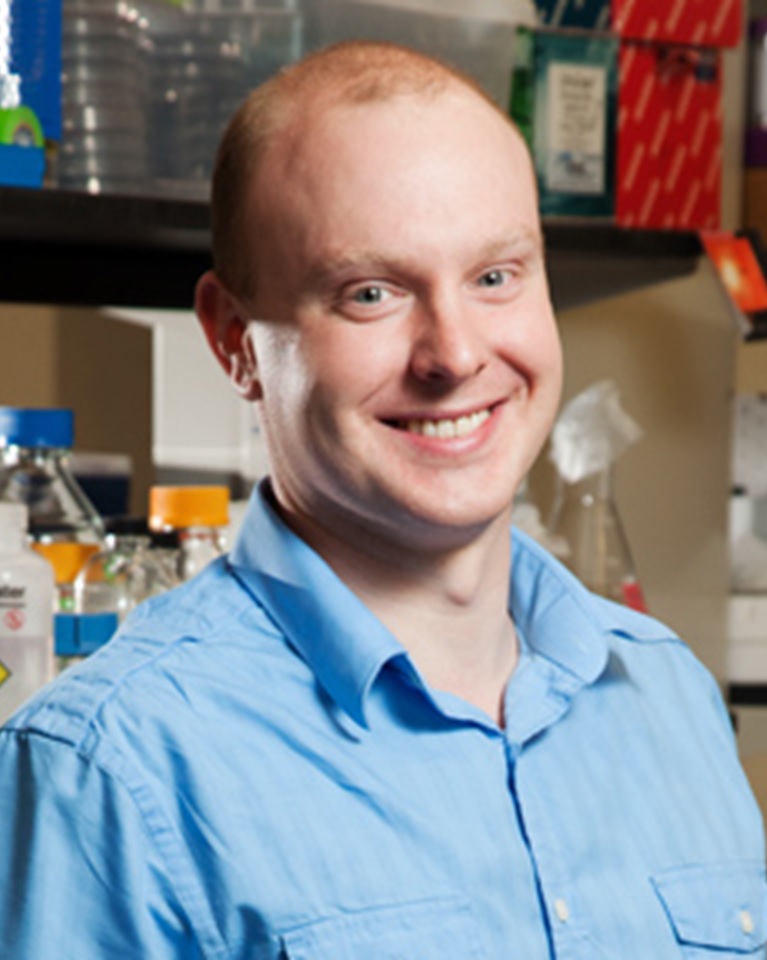
Douglas A. Mitchell, Ph.D.
University of Illinois Urbana-Champaign
Project Title: A Common Denominator of Pathogenesis; a Rare Opportunity for Novel Therapeutic Development
Grant ID: DP2-OD008463
Professor Mitchell received his undergraduate degree in chemistry from Carnegie Mellon University in 2002. After a short internship in medicinal chemistry at Merck Research Laboratories, he obtained his Ph.D. from the University of California, Berkeley in 2006. For postdoctoral studies, he worked with Jack Dixon at the University of California, San Diego. Professor Mitchell joined the University of Illinois faculty in 2009 and has research interests that span the interface of chemistry and biology.
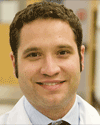
Harald C. Ott, M.D., Ph.D.
Massachusetts General Hospital
Project Title: Organ Engineering Based on Perfusion Decellularized Matrix
Grant ID: DP2-OD008749

Timothy P. Padera, Ph.D.
Massachusetts General Hospital
Project Title: Characterizing Lymphatic Micrometastases: Prognostic and Therapeutic Implications
Grant ID: DP2-OD008780
Dr. Padera earned Bachelor of Science degrees in both Chemical Engineering and Biomedical Engineering from Northwestern University in 1997. He then received his PhD from MIT in 2003 in Medical Engineering from the Harvard-MIT Division of Health Sciences and Technology under the supervision of Rakesh K. Jain. He is currently Assistant Professor of Radiation Oncology at Harvard Medical School and the Massachusetts General Hospital as well as a Member of the Harvard-MIT Health Sciences and Technology Faculty. Dr. Padera is recognized as a leader in the field of intravital functional lymphatic imaging, particularly with respect to tumor growth, lymphatic metastasis and lymphatic vessel pumping. He has published seminal papers looking at the role of functional peritumor lymphatic vessels in tumor dissemination (Science 2002), the source of lymphatic dysfunction in tumors (Nature 2004) and the lack of angiogenesis in the growth of lymph node metastases (JNCI 2015). His New Innovator Award focuses on the role the lymph node microenvironment plays in protecting cancer cells from therapy and inhibiting anti-cancer immunity.

Brian M. Paegel, Ph.D.
The Scripps Research Institute
Project Title: Evolving and Engineering New Protease Tools for Mass Spectrometry Proteomics
Grant ID: DP2-OD008535
Brian M. Paegel is associate professor in the Department of Chemistry at The Scripps Research Institute. Paegel earned his undergraduate degree in chemistry from Duke University and his doctoral degree in chemistry from UC Berkeley. He pursued postdoctoral studies in chemical biology and molecular evolution at The Scripps Research Institute, where he was the recipient of both a NIH National Research Service Award and a Pathway to Independence Award. In 2008 he was appointed to the chemistry faculty and relocated to TSRI’s new east coast campus in South Florida where he received a NIH Director’s New Innovator award and a NSF CAREER award. He is interested in the assembly of cell-like compartments and the unique chemistry and biology that can be conducted in their confines. He studies cellular membrane assembly, evolution of new proteases for mass spectrometry-based proteomics, DNA-encoded compound library synthesis, and picoliter-scale compound screening.
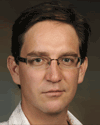
Michael Petrascheck, Ph.D.
The Scripps Research Institute
Project Title: Modulation of Sensory Perception to Treat Age Related Disease
Grant ID: DP2-OD008398
Michael Petrascheck obtained his doctoral degree from the University of Zurich in the Institute of Molecular Biology. He then joined the Linda Buck at the Fred Hutchinson Cancer Research Center in Seattle to study aging in C. elegans using a chemical genetics approach. Screening thousands of compounds for those that extend C. elegans lifespan he has identified over hundred lifespan extending compounds. Elucidating some of the underlying mechanisms he has found that many of these compound act on the nervous system by blocking biogenic amine signals such as serotonin suggesting that modulating signals by the nervous system is sufficient to extend lifespan.

Christine Queitsch, Ph.D.
University of Washington, Seattle
Project Title: Does Organismal Robustness Explain the Missing Heritability in Complex Diseases?
Grant ID: DP2-OD008371
Christine Queitsch conducted her undergraduate studies at Martin-Luther-University Halle-Wittenberg. She received a Fulbright fellowship to study with Susan Lindquist and earned her Ph.D. in Molecular Genetics and Cell Biology at the University of Chicago. She continued her research as a Bauer Fellow at the FAS Center for Systems Biology at Harvard, before joining the faculty at the Genome Sciences department of the University of Washington, Seattle, where she is currently an Associate Professor. Christine’s research focuses on the genetic architecture of complex traits. She advances complex trait genetics by ascertaining uncharacterized sequence variation and by resolving the relative importance of additive variation and epistasis in complex traits. Her ultimate goal is the development of molecular markers, applicable in any organism, that predict the penetrance of genetic variants in a given individual.

Arjun Raj, Ph.D.
University of Pennsylvania
Project Title: A Comprehensive Spatial Picture of Transcription in the Nucleus
Grant ID: DP2-OD008514
Arjun Raj went to UC Berkeley, where he majored in math and physics, earned his Ph.D. in math from the Courant Institute at NYU and did his postdoctoral training at MIT before joining the faculty in Penn Bioengineering in 2010, where he is currently an assistant professor. His research focus is on the developed experimental techniques for making highly quantitative measurements in single cells and models for linking those measurements to cellular function. His ultimate goal is to achieve a quantitative understanding of the molecular underpinnings of cellular behavior.
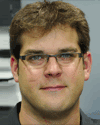
Christian D. Schlieker, Ph.D.
Yale University
Project Title: Deciphering Novel Protein Quality Control Pathways in the Nuclear Periphery
Grant ID: DP2-OD008624
Christian Schlieker majored in Genetics and Biochemistry at the University of Bonn, earned his Ph.D. from the University of Heidelberg and worked as postdoctoral fellow at Harvard Medical School and the Whitehead Institute for Biomedical Research/MIT. He is now an associate professor in Molecular Biophysics & Biochemistry in Yale where he investigates molecular mechanisms underlying nuclear envelopathies.
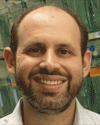
David M. Tobin, Ph.D.
Duke University
Project Title: Modulating Eicosanoids to Treat Tuberculosis: Personalized, Host-Directed Therapy
Grant ID: DP2-OD008614
David Tobin, a 2011 New Innovator Awardee, is in the Departments of Molecular Genetics and Microbiology and Immunology at Duke University's School of Medicine. His research focuses on understanding genetic susceptibility to tuberculosis and the host immune response to mycobacterial infection. He trained as a graduate student with Cori Bargmann at the University of California, San Francisco and completed a postdoctoral fellowship with Lalita Ramakrishnan at the University of Washington. He is also a recipient of a Searle Scholar Award, a Mallinckrodt Scholar Award, an ICAAC Young Investigator Award, and a Vallee Foundation Young Investigator Award. Before beginning his postdoctoral fellowship, he lived and taught in Guatemala, where he continues to collaborate.
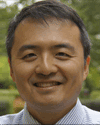
C. Jason Wang, M.D., Ph.D.
Stanford University
Project Title: Healthy Ideas Exchange
Grant ID: DP2-OD008647

Douglas B. Weibel, Ph.D.
University of Wisconsin, Madison
Project Title: Revisiting the Bacterial Cell Wall as a Target for New Antibiotics
Grant ID: DP2-OD008735
Douglas B. Weibel is an Associate Professor of Biochemistry, Chemistry, and Biomedical Engineering at the University of Wisconsin-Madison. He received his B.S. degree in chemistry in 1996, from the University of Utah, was a Fulbright Fellow at Tohoku University, Japan from 1996-1997, and received his Ph.D. in chemistry from Cornell University in 2002. During his graduate studies he spent two summer at Orchid Cellmark and the Max Planck Institute for Chemical Ecology, Jena, Germany. From 2002-2006 he was a postdoctoral fellow at Harvard University where his research spanned the fields of chemistry, materials science and engineering, and microbiology. From 2014-2015, Douglas was a visiting professor of physics at the University of Washington, Seattle and a principal scientist at Amazon.com, Inc.

Rebecca A. Wingert, Ph.D.
University of Notre Dame
Project Title: Identification of Kidney Regeneration Mechanisms Using the Zebrafish
Grant ID: DP2-OD008470

Joy Y. Wu, M.D., Ph.D.
Massachusetts General Hospital
Project Title: In Vivo Reconstitution of the Hematopoietic Niche
Grant ID: DP2-OD008466
Joy Wu is an Assistant Professor of Medicine in the Division of Endocrinology at the Stanford University School of Medicine. She received her M.D. and Ph.D. degrees from Duke University, followed by residency training in Internal Medicine at Brigham and Women’s Hospital and a clinical fellowship in Endocrinology, Diabetes and Metabolism at Massachusetts General Hospital. Her research focuses on skeletal development and the bone marrow hematopoietic niche, and her laboratory is using induced pluripotent stem cells to study osteoblast differentiation in a skeletal complementation model in vivo. In addition to the NIH Director’s New Innovator Award, she is the recipient of the Endocrine Scholars Award and Merck Senior Fellow Award from the Endocrine Society, the John Haddad Young Investigator Award from the American Society for Bone and Mineral Research, and a Cancer Research Grant from the Mary Kay Foundation.

Joao Xavier, Ph.D.
Sloan-Kettering Institute for Cancer Research
Project Title: Engineering Microbial Social Interactions: Towards New Anti-Biofilm Therapies
Grant ID: DP2-OD008440
Joao Xavier is a faculty member at Memorial Sloan-Kettering Cancer Center where he applies a combination of experiment and theory to investigate cell-cell interactions. Originally trained as a chemical engineer (IST Lisbon, 1998), Joao was fascinated by the emergence properties of biological systems and decided to pursue biofilm biology for his PhD (New University of Lisbon, 2003). After a first postdoc in biochemical engineering (Delft University of Technology, 2003-2005) he turned his attention to fundamental problems in evolutionary biology in a second postdoc with Kevin Foster at Harvard (2006-2009) to investigate the evolution of cooperation among bacteria. He started his lab at Sloan-Kettering in December 2009 and has since expanded his interests beyond biofilms to investigate other systems of medical relevance: the gut microbiota and cancer.
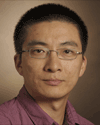
Qi Zhang, Ph.D.
Vanderbilt University
Project Title: Explore Fundamental Aspects of Neurotransmission with Multifunctional Nanosensor
Grant ID: DP2-OD008761
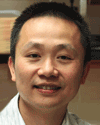
Haining Zhong, Ph.D.
Oregon Health and Science University
Project Title: Examining the Architecture of Synapses in Brain Tissue at Nanometer Resolution
Grant ID: DP2-OD008425
Haining Zhong is an assistant scientist at the Vollum Institute of Oregon Health & Science University at Portland, Oregon. He received a B.S. degree in biology and a B.Eng. degree in computer sciences from Tsinghua University, Beijing, China in 1996, and his Ph.D. degree from Johns Hopkins University School of Medicine in 2002, working with Dr. King-Wai Yau. He did his postdoctoral work with Drs. Karel Svoboda and Eric Betzig at HHMI Janelia Research Campus before joining Vollum in 2010. Haining’s research focus on examining neuronal function at the cellular and circuitry levels in vitro and in vivo using cutting-edge microscopic techniques. He also develops innovative solutions in sample preparation and labeling methods, which is required for successful application of microscopy to study biology in tissue.


